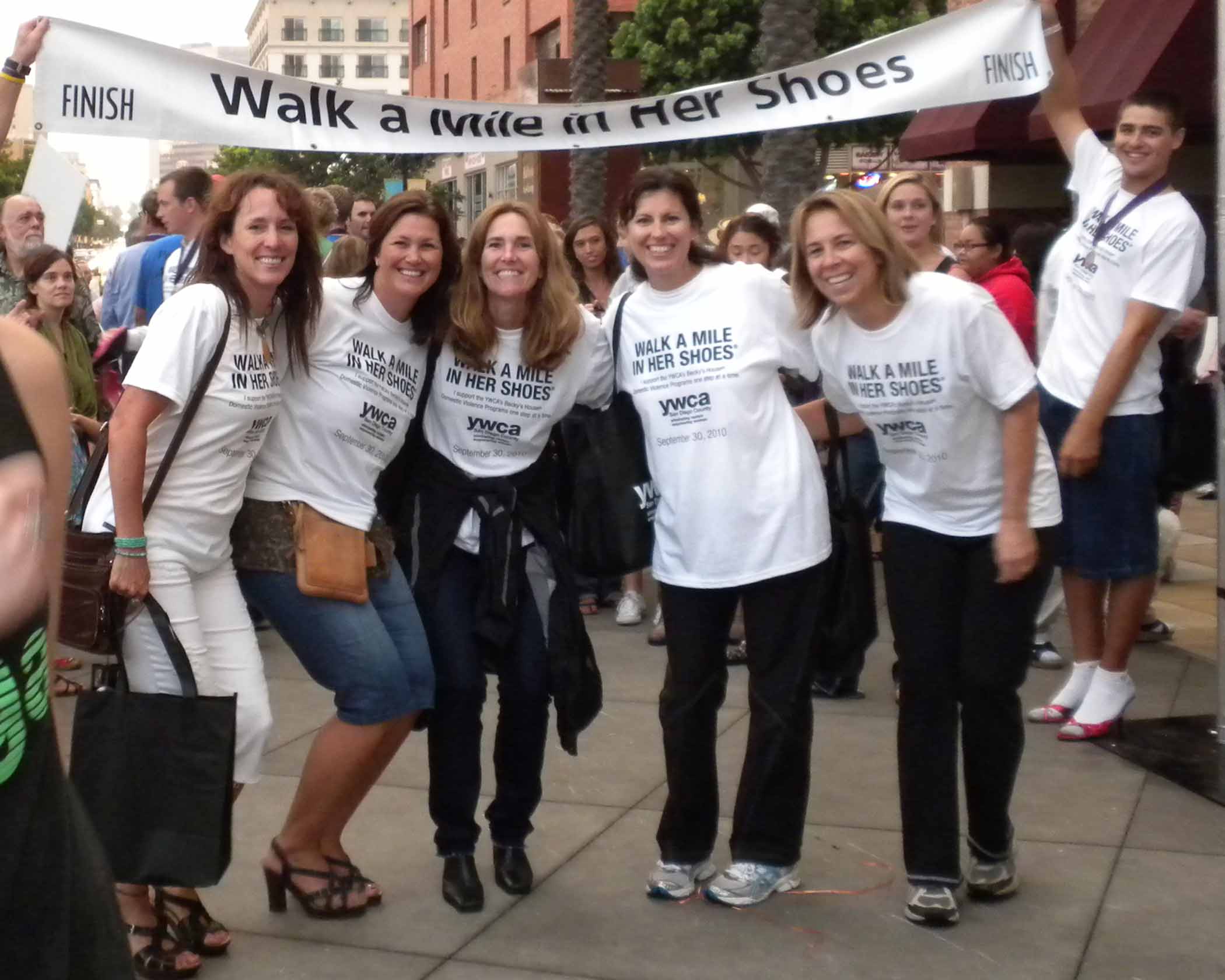*Note: This interview was originally published on Midlife at the Oasis.
Not all kisses are loving, as Elin Stebbins Waldal reveals so bravely and intimately in Tornado Warning: A Memoir of Teen Dating Violence and Its Effect on a Woman’s Life. As you know, Amy, Susan and I all have teenage daughters so we were immediately drawn to this topic. Elin, who is also the founder of girls kNOw more, has written a painfully honest account of her own experiences, sharing her personal teenage diary entries along with her adult perspective. This is an important and ultimately empowering book which should be read and discussed by all parents and teenagers.
I literally read your book in one sitting, silently begging you on every page to leave the abusive Derrick. It took a lot of courage for you to write your story. Why did you decide after all this time to share this with the public?
Reading the entire Twilight Saga was the catalyst for me to share my story now. Those books lit a fire inside me — I could not bear the thought of made-up stories existing without a counter-message told from the perspective of the teen I was. The Twilight books invoked such a visceral response in me because they are riddled with unhealthy relationship behaviors. Here is one example of many I found disturbing when put in context to the readership of tweens and teens:
When you love the one who is killing you, it left you no options. How could you run, how could you fight, when doing so would hurt that beloved one? If your life was all you had to give your beloved, how could you not give it?” – from Breaking Dawn
I knew I could not remain silent for another minute. There is nothing glamorous about living with someone who threatens to kill you.
Do you think you would have published your book if Derrick were still alive?
It is so hard to know for sure how I may have felt about publishing it if Derrick were alive, because he is not. The best I can say is that when I wrote my first draft, over two decades ago, he was alive and he was not the reason for me to abandon my dream of publication at that time. It is so important to have real stories. Part of the liberation I feel from healing is the freedom I have to share my journey and embrace my womanhood in its entirety, embracing it in a way that pays homage to all of my life experiences.
You were only 17 when you entered this abusive relationship. That’s such a vulnerable time in a girl’s life. What attracted you to Derrick and kept you in the relationship?
We had spent some time flirting and I was very attracted initially to what I perceived to be his grown-up qualities. He also had an air of mystery to him in that“not everyone understands me” sort of way. I think his protectiveness is what won me over; as you know, when we first met he rescued me from an uncomfortable altercation with another guy. I saw him as brave, righteous, and capable of seeing a girl as worthy of having the right to state her opinion. Apart from that, he was nice, funny, cute and, most importantly, he was a “grown-up.” He was out on his own, he owned his own business, he seemed mature and together, and all those things were very attractive to me because I was obsessed with my own emancipation. It is so important for individuals to understand how insidious abuse is; early on, his control over my decision-making leeched into me in a way where at some point it seemed normal. I think I looked to him as the one who knew better because he was older. He never laid a finger on me until I was living with him; once we were under the same roof, the emotional and physical abuse took hold.
Do you think there were certain characteristics Derrick saw in you that convinced him you would take his abuse? You seemed strong and confident, but he called you “little and helpless,” and told you that’s what attracted him to you. Did you become his perception of you, which is what so many teenage girls do with boys they like?
I think I was flattered that he felt I “understood” him. In a word, it helped me to feel special. He for sure played up the “nobody but you gets me” syndrome. I absolutely believe he found my best attributes — the ability to nurture and have empathy — and used them to attach himself to me in a way that served to make me feel responsible for his well-being.
On some level, I am sure I became his perception of me; that is, until the reality of living with him began to catch up with me. I was working two jobs — I was supporting him — and life, if it remained on that path, was going to be painfully long.
In hindsight, it’s easy to see warning signs. Looking back, when should you have left him?
Oh, this is tough. I don’t really subscribe to “should,” per se, and each woman’s journey is very individual. As frightening as it sounds, I believe I left when I discovered my strength. As you saw in my story, I went back so many times and, sadly, that is the pattern in abusive relationships. Having said that, had I understood the warning signs I may have thought twice when he announced to the room that I was his “girlfriend.” He never asked for my consent — without the tools, I saw it as a compliment; with education ,I may have seen it as a means for “quick involvement” and a need for control which lacked regard for my own say-so. The other important piece to remember is that he was threatening to kill himself, me, our dog, my family members. It was very scary for me to imagine leaving alive, and in some ways I think I was protecting myself, my family and him all at once.
How long were you involved with Derrick? What finally enabled you to leave him?
We were together just shy of three years. It was a combination of things which led me away. I was slowly asserting myself and reclaiming who I was but my decision to go to college really brought my strength to a new height, thus allowing me to end it. Once I had the space to feel who I was without him, I couldn’t imagine being who I had become when I was with him. It was really hard though because leaving him meant giving up on him and the relationship prong which a couple becomes: “us.” The guy he claimed he wanted to be was incongruent with the guy he really was; the “us” I fantasized about did not match the “us” we had grown into. Once I could clearly see and feel all of that, it was easier to take the steps toward breaking free. READ FULL STORY




Leave a Reply